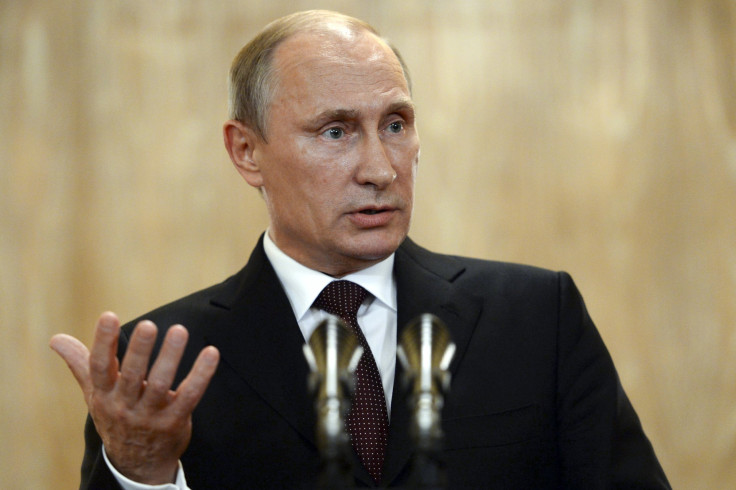Putin At G20: With The Russian President Shaking Up The Global Scene, The Summit Is More Relevant Than Ever

The G20 meeting isn’t exactly the most exciting annual event on your calendar -- if it's on your calendar at all -- but this year it's worth watching. All eyes are on Russian President Vladimir Putin, who stepped off the plane in Brisbane, Australia, on Friday to a crowd of protesters and a group of world leaders ready to put the pressure on him over the crisis in Ukraine.
You might be wondering, what’s the deal with the G20 anyway? As the Guardian explains below, it’s usually more of a photo opportunity for world leaders than a down-and-dirty, crunch-the-numbers economic summit:
This year, Western leaders look to put the pressure they’ve set on Putin in the international media, on Putin face-to-face. They’ll need to if they want to walk away from Brisbane ahead in the game. Both British Prime Minister David Cameron and Australian Prime Minister Tony Abbott vowed to confront Putin over Ukraine.
On Friday, soon after arriving in Brisbane, Cameron appeared to relate Russia’s aggression in Ukraine to Nazi Germany’s aggression leading up to World War II.
"It is a large state bullying a smaller state in Europe,” Cameron said. “We've seen the consequences of that in the past and we should learn the lessons of history and make sure we don't let it happen again.”
Abbott, who promised to “shirtfront” Putin over the downing of MH17, accused Putin of trying to “re-create the lost glories of czarism and the Soviet Union,” and later said that “Russia would be so much more attractive if it was aspiring to be a superpower for peace, freedom and prosperity.”
Abbott has a particular duty to confront Putin over MH17. Thirty-eight Australians were killed when the Malaysia Airlines flight was shot down over rebel-held territory in eastern Ukraine in July. The sophisticated missile system that brought it and its 298 passengers down is suspected to have been supplied to rebels by Russia.
It doesn’t help that Sweden announced on Friday that it had proof that a foreign submarine, suspected to be Russian, was operating illegally in its waters in late October.
Putin isn’t ready to back down, though. Likely knowing that he would be the focus of criticism over Russia’s military aggression, he arrived in Brisbane with a flotilla of Russian warships stationed in international waters off the coast of Australia. It’s not unprecedented, but certainly sends a message.
Since the G20 is an economic conference at heart, the European Union and U.S. sanctions helping to send the Russian economy into a potential standstill will be a hot topic. German Chancellor Angela Merkel said earlier this week there were no further sanctions planned by the EU, but it appears she may have spoken too soon. The next day, NATO announced once again it had evidence Russia was moving troops, weapons and equipment into Ukraine, about two months into a shaky cease-fire between pro-Russian rebels and the Ukrainian government.
Putin has taken the opportunity to push his belief that the sanctions are illegal and hurting the entire global economy. He argued that the sanctions “contradict international law” because they are only supposed to be enacted within the authority of the United Nations and its Security Council, of which Russia is a permanent member.
“This is harmful, and of course is doing us some damage, but it's harmful for them as well because, in essence, it's undermining the entire system of international economic relations,” Putin said to Russian outlet ITAR-TASS.
Here’s Russian state-funded outlet RT’s takeaways of Putin’s pre-G20 speech.
If there’s anyone to watch at the G20, it’ll be Merkel. She has refrained from the aggressive talk of other Western leaders to maintain a position as the best middlewoman between the West and Putin. She’ll meet with Putin one-on-one in Brisbane, and the situation in Ukraine moving forward will likely be partially dependent on how that conversation goes.
© Copyright IBTimes 2025. All rights reserved.




















